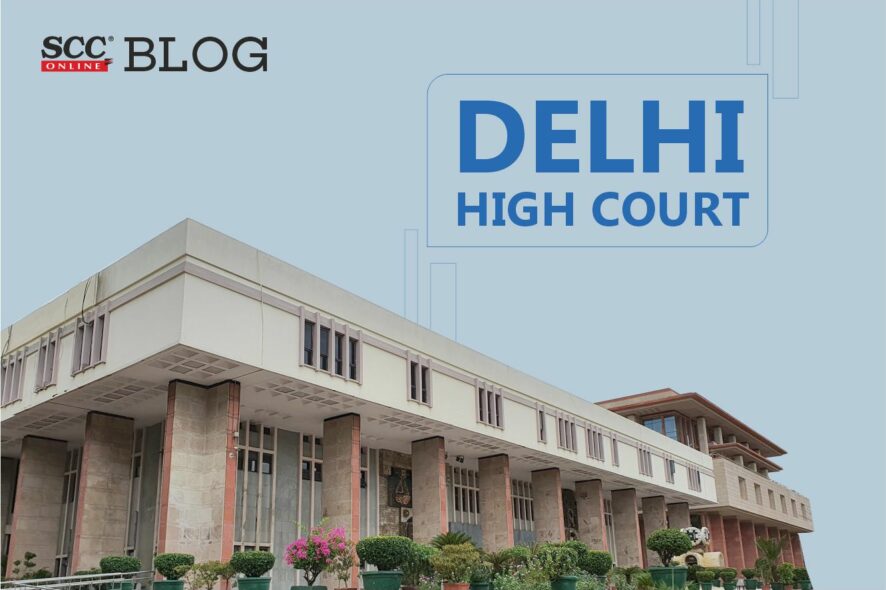Delhi High Court: In an application filed by the plaintiff seeking permission to file rectification/cancellation petition against registrations of Defendant’s trademark ‘TRAVELXP’ in different classes, Jyoti Singh, J., adjourned the proceedings for a period of three months, to enable the plaintiffs to take appropriate steps, in accordance with law, to raise the plea of invalidity by preferring rectification proceedings, before the appropriate forum.
The present suit was instituted by the plaintiffs seeking permanent injunction against the defendant for inter alia infringing plaintiffs’ trademark ‘TRAVELEX’ as well as passing off. Plaintiffs 1 and 2 are companies incorporated under the laws of United Kingdom while Plaintiff 3 is incorporated under the Companies Act, 1956. Plaintiffs claim to have adopted the mark TRAVELEX in 1976 for providing services in relation to currency exchange business including supplying currency online at airports, shopping malls, for financial institutions etc. In India, plaintiffs have obtained registrations for the trademark TRAVELEX in Classes 16, 35 and 36.
An ex parte ad interim injunction was granted in favour of the Plaintiffs by the Court, observing that the rival marks bear visual and phonetic resemblance and the services offered by the Plaintiffs relating to foreign exchange go hand in hand with the services of the Defendant.
Counsel for defendant submitted that the pleadings in the plaint do not contain material particulars sufficient to frame an issue of invalidity as required by law under Order XIV CPC, even if the plaint is read. It further submitted that even the amended plaint does not contain the required particulars under Sections 47 and 57 of Trade Marks Act, 1999 rather, generic statement has been made that registrations have been obtained fraudulently by the Defendant, with no material particulars of the alleged fraud.
The Court noted that the present application is to be decided in accordance with the provisions of Section 124 of Trade Marks Act, 1999. At this stage, the Court is only required to render a prima facie view regarding tenability of the plea of invalidity of Defendant’s registered trademark.
The Court further noted that on a plain reading of Section 124(1)(b)(ii) of Trade Marks Act shows that two ingredients are required to be met for an Applicant to succeed viz:
(a) plea of invalidation; and
(b) prima facie tenability.
The Court observed that the plea of invalidity of registration of Defendant’s trademark is not set out in the plaint, as according to the Plaintiffs, this fact was disclosed in the written statement. Plaintiffs thereafter sought amendment of the plaint, which was allowed and therefore, for the purpose of the present application, it is the amended plaint which requires to be examined.
It was further observed that from a perusal of the amended plaint, it is evident that Plaintiffs have pleaded regarding deceptive similarity with an intent to obtain undue monetary benefits based on the substantial goodwill and reputation attached to Plaintiffs which brings the Court to the conclusion that the pleadings are sufficient to lay a foundation for the plea of invalidity as required under Section 124 of Trademarks Act.
Thus, the Court opined that looking at the plea of invalidity raised by the Plaintiffs on account of the alleged phonetic and visual similarity between the rival trademarks and the commonality of activity, which view is supported by the interim orders granted by this Court on 25-01-2016 and 09-05-2016, the plea of invalidity is prima facie tenable.
The Court remarked that no doubt, the injunction orders passed by this Court are only interim orders, but they continue to operate till date and reflect the prima facie view of the Court and that, at this stage, the Court is only examining if the plea of invalidity raised by the Plaintiffs is prima facie tenable and the final decision on the validity of registration of the impugned mark will be taken only in the rectification petition, when filed.
The Court concluded that it would be open to the Defendant to defend its registrations on all grounds available in law, including alleged dissimilarity of marks which carry suffixes, if any and the services offered by the respective parties.
The Court noted that the issues have not been framed in the suit, but deemed it appropriate to frame an issue necessary for disposal of the present application and thus, frames an issue “Whether the registrations of the Defendant’s mark TRAVELXP under application nos. 2015719 in class 16; 3415619 and 2827560 in class 35; 1791996 and 4193598 in Class 38; 1793715, 3415616 and 2827562 in Class 39 and 2015720 in Class 43 are invalid and liable to be cancelled/rectified? OPP”
The Court held that in view of the provisions of Section 124(1)(b)(ii) of Trade Marks Act, 1999, proceedings are adjourned for a period of three months, to enable the plaintiffs to take appropriate steps, in accordance with law, to raise the plea of invalidity by preferring rectification proceedings, before the appropriate forum.
[Travellers Exchange Corporation Limited v. Celebrities Management Private Limited, 2022 SCC OnLine Del 3528, decided on 20-10-2022]
Advocates who appeared in this case :
Mr. J. Sai Deepak, Ms. Sangeeta Goel, Mr. Mohit Goel, Mr. Sidhant Goel, Mr. Aditya Goel, Mr. Karmaya Dev Sharma and Mr. R. Abhishek, Advocates, for the Plaintiff;
Mr. Jayant Mehta, Senior Advocate with Mr. Abhishek Puri, Ms. Surbhi Gupta, Mr. Abhishek Tiwari and Mr. Amrit Singh, Advocates, for the Defendants.
*Arunima Bose, Editorial Assistant has reported this brief.



